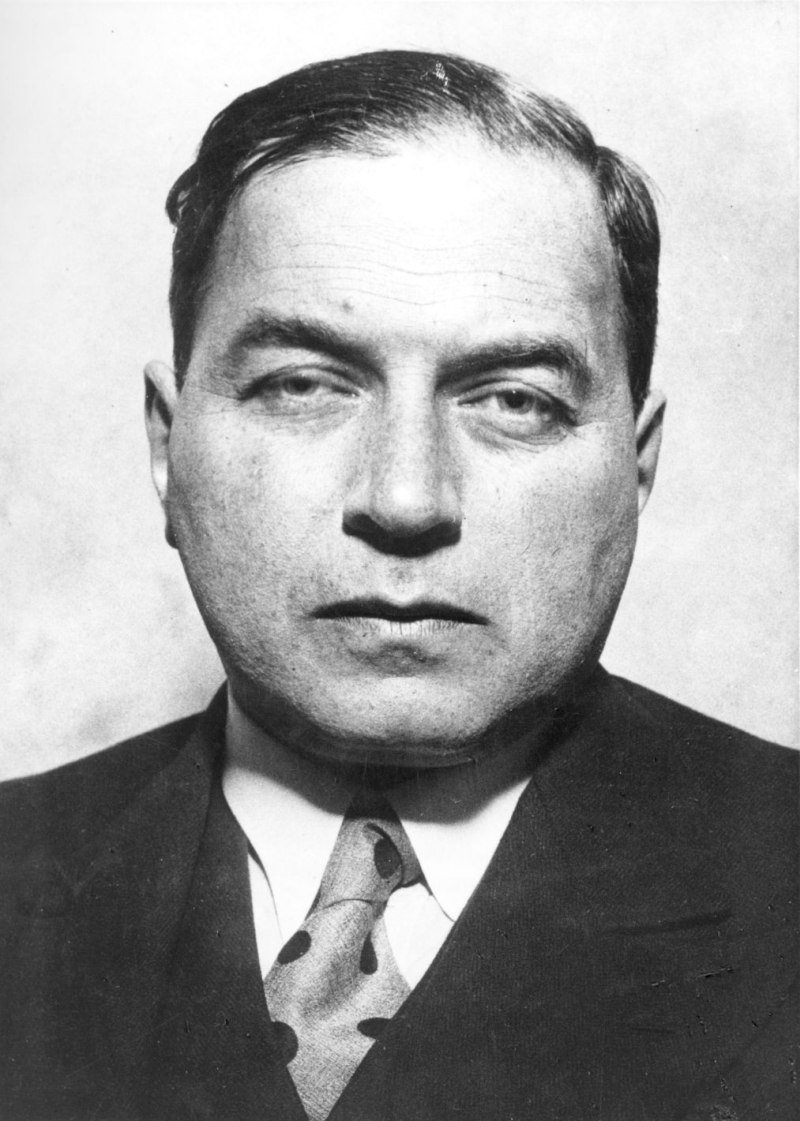Friedrich Engel-Janosi
| Born: |
02-18-1893 |
| Faculty: |
Philosophical School |
| Category: |
Expelled teacher |
Friedrich ENGEL-JANOSI (born on February 18th, 1893 in Vienna, died on March 7th, 1978 in Vienna) was private lecturer ("Privatdozent") with the title of an extraordinary professor ("ao. Prof.") for History Newer History at the Philosophical School of the University of Vienna.
He was persecuted in times of Nazism as a Jew lost his position and was thrown out of the university in 1938.
Engel-Jánosi, the son of a Hungarian industrialist, first studied law. During his studies he among other things worked as an assistant to Hans Kelsen. In 1919 - after serving in World War I - he completed his studies, so as to begin studying history, and obtained his doctorate in 1921. At first he worked in a bank, only to take over his father’s wood factory in 1924. Five years later he habilitated at the University of Vienna for general modern history and in 1935 received the title of associate professor. Between 1936 and 1938 he worked as an exchange professor in Rome and during this time converted from Judaism to Catholicism.[1] If one can believe a letter sent from the Wilhelm-Braumueller publishing house to the Reichsschrifttumskammer (Reich literary chamber) in 1937, Engel-Jánosi “for some time” was a member of “the Austrian Heimwehr (during the Marxist revolt in February 1934)”. The reason for the letter was the in Nazi-Germany prohibited distribution of the book “Die Jugendzeit des Grafen Prokesch von Osten” (“The Youth of Count Prokesch von Osten”), which was attributable to Jánosis Jewish heritage.[2]
After the “Anschluss” he had to end his teaching career in Rome.
[3] The ministry of education rescinded his venia docendi for “racial” reasons on April 22nd, 1938.
[4] As a result he fled to the United States through France and Great Britain in 1939
[5] and for a short time worked as a lecturer at Cambridge University. From 1940 to 1942 he at first was a research associate at Johns Hopkins University, then visiting professor (1942-44) and finally from early 1945 onward professor for European history at the Catholic University of America in Washington, D.C.
[6]
After the end of the war he did not immediately return to Austria and the University of Vienna, although the philosophical faculty nominated him in first place for a professorship in December 1948. According to a letter later sent from the dean’s office, this appointment failed because of “certain difficulties, connected to personal circumstances of a domestic nature”.
[7] Shortly afterwards, in the summer semester of 1949, he was in second place on a nomination list of the University of Graz, while also teaching as a visiting professor at the University of Vienna in that semester.
[8]
A permanent return to the University of Vienna followed in 1959 with an appointment as an honorary professor.
[9] In Vienna he also assumed the office of president of the 1965 international congress of historians.
[10] Engel-Jánosi’s work in Vienna was, however, overshadowed by constant conflicts over his retirement and his employment at the University of Vienna beyond the age of 75. A possible emigration to the United States was discussed in 1965, for example, which could, however, be averted.
[11] Ultimately, he ended his work at the University of Vienna in 1969 at the age of 76. Two years earlier he had received the Oesterreichisches Ehrenzeichen fuer Wissenschaft und Kunst Erster Klasse (Austrian Decoration for Science and Art First Class).
[12]
In his research, Engel-Jánosi focused on the Austrian history of the 19th and 20th centuries and in particular the relationship between Austria and the Vatican.
[13] Among his best known publications are “Oesterreich und der Vatikan” (two volumes, 1958-60) and “Vom Chaos zur Katastrophe” (1971).
[14]Among other things he was vice president as well as president of the Austrian American Catholic Federation, corresponding member of the Austrian Academy of Sciences, honorary member of the Institut fuer Oesterreichische Geschichtsforschung (Institute for Austrian History Research), president of the Istituto per la Storia de Risorgimento and the Catholic Historical Association.
[15] He also was president of the Verband oesterreichischer Geschichtsvereine (Association of Austrian Historical Societies)
[16] and was awarded the Guggenheim Foundation Award (1955)
[17] as well as the Ehrenmedaille der Bundeshauptstadt Wien (Medal of Honor of the Federal Capital Vienna) in gold.
[18]Incidentally, Jánosi, who from 1965 onwards also taught at the diplomatic academy in Vienna, also was a co-signer of the proclamation addressed to Austrians living in the United States, appealing to them to participate in the planned Austrian battalion of the US-Army.
[19]
Lit.: Federal Archives Berlin (BArch) / RK, MF Z 15; Austrian State Archive (OeStA) / Archives of the Republic (AdR) / PA Engel-Jánosi; Archive of the University of Vienna (UA) / PH PA 2034, PHIL GZ 659 ex 1937/38; Gernot HEISS, Von Oesterreichs deutscher Vergangenheit und Aufgabe. Die Wiener Schule der Geschichtswissenschaft und der Nationalsozialismus, in: ibid. et.al (eds.), Willfaehrige Wissenschaft. Die Universitaet Wien 1938 bis 1945, Vienna 1989, 38-76; MUEHLBERGER 1993, 40; CZEIKE Vol. 2 1993; ROEDER Vol. 2 1983.
[2] BArch, RK, MF Z 15, fol. 884, Wilhelm-Braumueller-Verlag an Reichsschrifttumskammer, 11. 11. 1937.
[3] UA, PA, fol. 210, PHIL Dekanat an Engel-Jánosi, 25. 5. 1938.
[4] UA, PHIL GZ 659-1937/38, O.-Nr. 63, PHIL Dekanat an Engel-Jánosi, 23. 4. 1938.
[7] OeStA/AdR, PA, BMU GZ 33.665-4/58, PHIL Dekanat an BMU, 3. 2. 1958.
[8] Gernot Heiss, Von Österreichs deutscher Vergangenheit und Aufgabe. Die Wiener Schule der Geschichtswissenschaft und der Nationalsozialismus, in: ders. et. al (ads.), Willfaehrige Wissenschaft. Die Universitaet Wien 1938 bis 1945, Vienna 1989, 38-76, 59.
[11] Cf. OeStA/AdR, PA, BMU GZ 45.071/-I/4/65, Vermerk, o. D.
[12] UA, PA, fol. 20, BMU an Engel-Jánosi, 19. 5. 1967.
[16] OeStA/AdR, PA, BMU GZ 134.790-I/5/66, Ehrenzeichenkanzlei an Praesidium des BMU, 30. 3. 1967.
[18] OeStA/AdR, PA, BMU GZ 88821-I/4/68, Engel-Jánosi an BMU, 29. 3. 1971.
